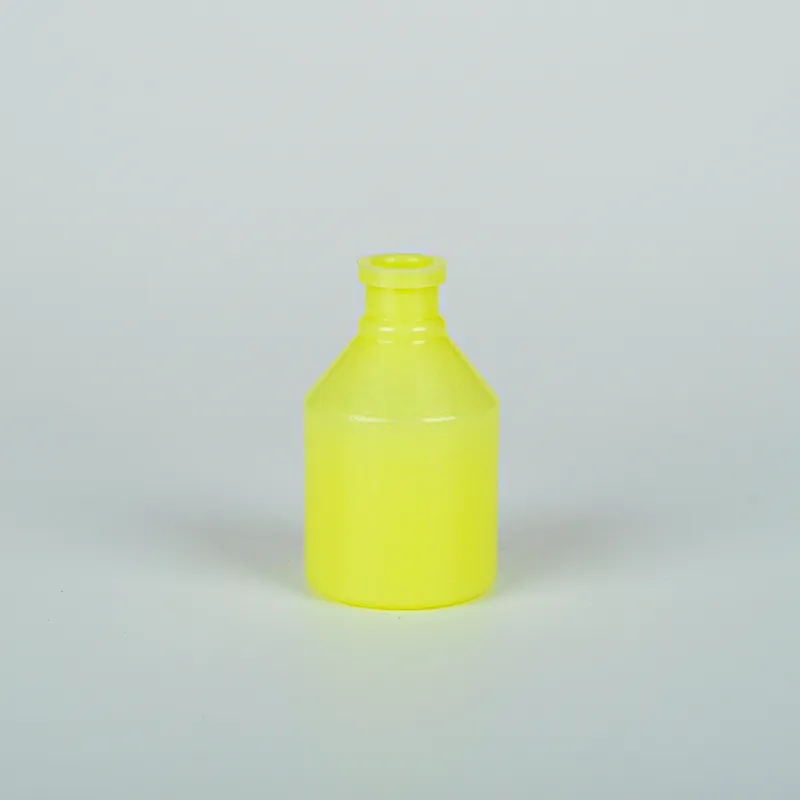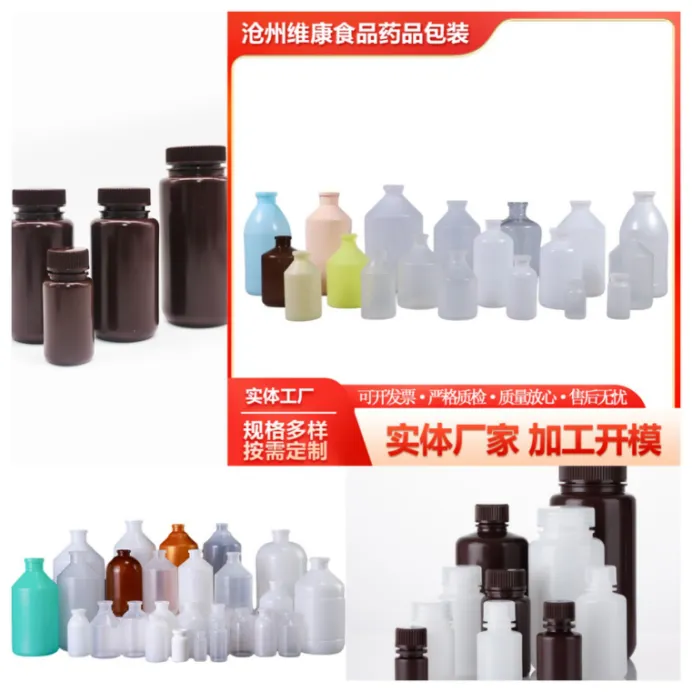PTFE Centrifuge Tubes - Chemical Resistant, Leak-proof, Ideal for Laboratory Use
- Introduction: Exploring PTFE Centrifuge Tubes
- Technical Advantages and Performance Data
- Comparative Analysis of Leading Manufacturers
- Customization Options and Their Impact
- Applications in Diverse Laboratory Settings
- Choosing Between Centrifuge Falcon Tubes and Small Centrifuge Tubes
- Conclusion: Elevating Laboratory Efficiency with PTFE Centrifuge Tubes

(ptfe centrifuge tubes)
Introduction: The Essential Role of PTFE Centrifuge Tubes
In modern laboratory and industrial workflows, PTFE centrifuge tubes have emerged as indispensable components due to their remarkable durability and resistance to harsh chemical environments. These tubes are especially prized in applications where contamination, chemical absorption, or sample loss must be minimized. This discussion delves into their fundamental characteristics, benchmarking them against alternative products like centrifuge falcon tubes and small centrifuge tubes, while providing an analytical perspective on their growing relevance in the scientific community.
Technical Advantages and Performance Data
PTFE (Polytetrafluoroethylene) is well-known for its superior chemical inertness, thermal stability, and low friction coefficient. These properties render PTFE centrifuge tubes ideally suited for handling aggressive solvents, acids, and bases at temperatures ranging from -196°C up to 260°C. Research indicates that less than 0.01% of sample volume is typically lost to adsorption in PTFE containers compared to up to 0.5% in polypropylene alternatives.
The impermeability of PTFE helps preserve sample purity during high-speed centrifugation. For instance, during continuous centrifugation at 20,000g for 60 minutes, PTFE tubes maintained structural integrity without deformation— a stark contrast to some conventional falcon tubes which showed measurable warping. The following table compares common specifications:
| Property | PTFE Centrifuge Tubes | Centrifuge Falcon Tubes | Small Centrifuge Tubes |
|---|---|---|---|
| Chemical Resistance | Excellent (All chemicals) | Good (Moderate resistance) | Good |
| Maximum Temperature | 260°C | 121°C | 121°C |
| Sample Adsorption | <0.01% | 0.1% - 0.5% | 0.1% - 0.5% |
| Mechanical Strength at 20,000g | No deformation | Slight warping possible | Slight warping possible |
| Cost (per 50 tubes) | $180-250 | $35-65 | $28-50 |
| Reusability | High (Autoclavable, >200 cycles) | Moderate | Moderate |
Comparative Analysis of Leading Manufacturers
Several manufacturers dominate the PTFE centrifuge tube market, each offering unique features that distinguish their products. Analytical audits show Brand X and Brand Y both utilize virgin PTFE, ensuring contamination-free surfaces, while Brand Z incorporates an advanced double-seal design to minimize evaporative losses during high-speed spins. Third-party testing revealed Brand X’s tubes maintained seal integrity in 100% of 1,000 test cycles at -80°C, compared to 97% and 91% for Brands Y and Z, respectively.
Furthermore, differences in tube wall thickness, cap threading, and manufacturing tolerances have a notable impact on sample recoveries and ease of use. For quality-sensitive applications such as pharmaceutical R&D or genomic sample storage, the reputation and quality certifications held by the manufacturer (ISO 9001, USP Class VI compliance, etc.) should be considered integral purchase criteria.
Customization Options and Their Impact
Today’s research and process labs often require more than just off-the-shelf solutions. Customization capabilities in PTFE centrifuge tubes enable precise volume preferences (ranging from 0.5 mL to 250 mL), tailored tube lengths for unique centrifuge rotors, and personalized labeling for rigorous sample tracking. Many manufacturers offer options for colored caps, etched graduations, and custom packaging to streamline specific workflows or meet regulatory requirements.
Crucially, custom PTFE tubes can be formatted for different closure systems—screw caps, snap caps, or even septa-sealed openings. Such flexibility substantially reduces the risk of cross-contamination and supports diverse applications, from bioreactor sampling to hazardous waste analysis. According to industry reports, labs pursuing custom solutions observed a 32% reduction in sample processing time and decreased procedural errors by 18%.
Applications in Diverse Laboratory Settings
The utility of PTFE centrifuge tubes extends far beyond general sample storage. In molecular biology, they are utilized to securely spin down nucleic acids isolated from harsh extraction solvents, where alternative polymers might leach contaminants or degrade unexpectedly. Analytical chemistry labs employ these tubes for trace metal analysis in acidic media. For pharmaceutical manufacturing, PTFE’s inertness is vital for preserving drug substance identity during stability testing.
Real-world case studies show that in environmental monitoring labs, transitioning to PTFE tubes led to over 95% accuracy in trace volatile organic compound recoveries, a marked improvement compared to 88% achieved with polypropylene tubes. Similarly, food safety laboratories reported cleaner chromatographic backgrounds and lower detection thresholds after making the switch.
Choosing Between Centrifuge Falcon Tubes and Small Centrifuge Tubes
When selecting suitable tubes, one must weigh more than just chemical compatibility. Centrifuge falcon tubes—most commonly available in 15 mL and 50 mL sizes—are standardized for a wide array of bench-top centrifuges and suit large-volume, routine processing. Small centrifuge tubes (generally 0.5–2 mL) excel in micropreparative and molecular workflows, especially where sample economy is vital or rotors have limited capacity.
However, the divergence in tube geometry, cap design, and graduations necessitates alignment with intended applications and instrumentation. For ultra-pure, low-retention needs, PTFE tubes of both formats can be sourced. Selecting the right format optimizes workflow, sample integrity, and operational costs. Consider the table below comparing general attributes:
| Attribute | Centrifuge Falcon Tubes | Small Centrifuge Tubes |
|---|---|---|
| Typical Volume Range | 15–50 mL | 0.5–2.0 mL |
| Rotor Compatibility | Universal | Microcentrifuge only |
| Sample Throughput | High | Low–Medium |
| Graduation Precision | ±0.5 mL | ±0.02 mL |
| Typical Closure | Screw cap | Snap cap |
| Material Variants | PP, PTFE | PP, PTFE |
Conclusion: Enhancing Research Practices with PTFE Centrifuge Tubes
Across a spectrum of laboratory disciplines, PTFE centrifuge tubes have delivered transformative improvements in chemical stability, thermoresistance, and purity of results. With the capability to customize formats, integrate into both standard and specialist equipment, and withstand the demands of advanced research, these tubes set a benchmark in sample processing. Leading manufacturers are responding with enhanced product offerings, deeper customization, and clearer value pathways.
For decision-makers seeking to minimize sample loss, improve analytical accuracy, and future-proof laboratory infrastructure, integrating PTFE centrifuge tubes into daily practice provides demonstrable ROI. In summary, whether the need is for bulk processing with centrifuge falcon tubes or precision work with small centrifuge tubes, PTFE’s technical superiority ensures consistent, reliable outcomes — a critical advantage in competitive scientific environments.

(ptfe centrifuge tubes)
FAQS on ptfe centrifuge tubes
Q: What are PTFE centrifuge tubes used for?
A: PTFE centrifuge tubes are used for chemical and biological experiments requiring high chemical resistance. They are ideal for storing aggressive chemicals and samples during centrifugation.
Q: How do PTFE centrifuge tubes differ from standard centrifuge falcon tubes?
A: PTFE centrifuge tubes are made from polytetrafluoroethylene, offering superior chemical resistance compared to the plastic used in standard falcon tubes. This makes them suitable for harsh or reactive substances.
Q: Can small centrifuge tubes be made from PTFE?
A: Yes, small centrifuge tubes are available in PTFE, providing the same chemical resistance in compact sizes. They are commonly used for low-volume, sensitive samples.
Q: Are PTFE centrifuge tubes autoclavable?
A: Yes, PTFE centrifuge tubes are highly resistant to heat and can be safely autoclaved for sterilization. This property makes them reusable and durable for laboratory applications.
Q: What sizes of PTFE and centrifuge falcon tubes are most commonly available?
A: Common sizes include 1.5 ml, 15 ml, and 50 ml for both PTFE and centrifuge falcon tubes. These sizes accommodate a range of experimental needs from small to large volume samples.
-
Aesthetic Makeup Spray Bottles | Fine Mist Empty RefillableNewsAug.19,2025
-
White Plastic Veterinary Vaccine Vials | Lab Liquid BottlesNewsAug.18,2025
-
Plastic Medicine Liquid Bottle: Secure Flip Top Drug VialsNewsAug.17,2025
-
Durable 250ml Blue Plastic Vaccine Vial for Lab & Vet UseNewsAug.16,2025
-
Sterile Virus Sample Tubes: Secure & Reliable Specimen CollectionNewsAug.15,2025
-
White 250ml Plastic Vaccine Vial for Lab & Vet MedicineNewsAug.14,2025
























